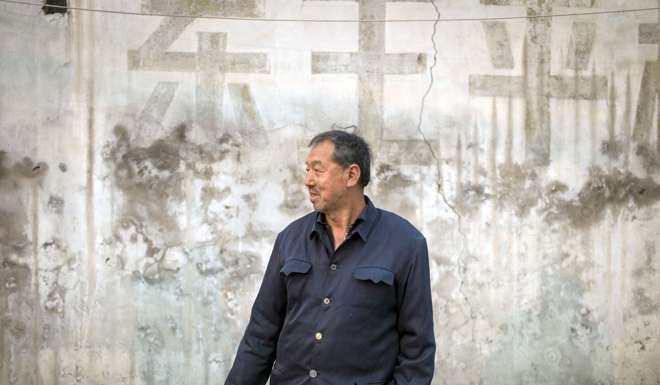
No easy answers for laid-off workers as China steps up push against excess capacity
A proposal for laid-off coal miners to find new jobs as drivers for ride-hailing Didi Chuxing has a number of shortcomings

As China’s central planners reaffirmed their commitment to tackle industrial overcapacity, attention is focusing on how to assist the growing number of laid off workers transition to new careers.
Opportunities created by technology disruptors might provide part of the answer, although there is little consensus as to whether these companies can provide a viable solution for the up to 2 million heavy industry workers expected to lose their jobs under restructuring.
The issue was brought into sharper focus last week when Shanxi Coking Coal Group, China’s largest coking coal producer, announced that it had signed an agreement with ride-hailing company Didi Chuxing to enable some workers slated for redundancy to make the transition to chauffeur services.
“The idea is easy to come up with but difficult to carry out,” said Wang Tao, China economist at UBS based in Hong Kong. “I do not think it is very practicable that technology companies can help a lot to relocate those laid-off as a result of overcapacity.”
Wang said heavy industries such as steel, which have been struggling against slumping prices and weak demand, tended to be concentrated in China’s smaller cities, many of which are economically in decline.

“The demand for technology-related services is weak when the pillar coal or steel sector is deteriorating,” he said.
Hegang, a city of 1.06 million in China’s northeastern Heilongjiang province, is renowned for coal production.
“My parents do not take taxis, not to mention know how to hail a [Didi Chuxing] car. The people I know, especially elders, prefer tricycles rather than cars in my city,” said David Li, a native of Hegang who now resides in Shenzhen. “Most of the younger generation who have a need for chauffeur services go to big cities to make a living.”
Another concern is whether laid-off workers have the right skills to successfully transfer into these new industries.
Industrial Bank chief economist Lu Zhengwei questioned whether workers from the industrial sector have suitable driving skills or inclination towards customer service.
Meanwhile, relocating to hot spots where the ride-hailing apps are most in demand can be a major headache.
Applicants for jobs in Shanghai or Beijing will need to produce a local household registration permit, known as a Hukou.
However proposed new laws regulating ride-hailing services specify that drivers must hold local Hukous.
“The rules closed the door for non-local people to be Didi drivers,” Lu said.
In addition, access to health care and local schools are restricted under the Hukou system.
“Some laid-off workers willing to search for new jobs in big cities could be deterred by China’s health-care and education system because without a local Hukou, they have difficulty in seeing doctors or their children cannot go to public schools,” Wang said.
“If non-locals could have the same rights to social welfare benefits as locals, the pressure on worker relocation could be released to some extent, but it is a long-term issue,” she added.
“From a short term perspective, retraining is important for those who’ve been laid off to find new jobs.”
Didi Chuxing said in June that it has hired 3.89 million full-time and part-time drivers from 17 heavy-industry provinces, including Heilongjiang, Shanxi and Sichuan.
How China’s economy restructures: one million former coal and steel workers driving for Didi Chuxing
“Didi is helping to solve the relocation problem, but fundamentally there are limits,” Lu said. “Technology brings some employment opportunities but at the same time, its also takes away some jobs.”
Earlier this year China said it plans to layoff 1.8 million steel and coal workers in an effort to reduce industrial overcapacity, although no time frame was given for the retrenchments.
In the new year, Beijing’s efforts to curb excess industrial capacity are likely to remain in focus amid concerns over possible trade frictions with the US.
However, a recent uptick in prices for selected steel and iron products could undermine efforts to scale back capacity in the year ahead, leading to fewer layoffs than expected.
Prices for steel rebar, a component widely used in construction, have risen about 40 per cent since October, according to data on futures for May delivery on the Shanghai Futures Exchange. “The steel companies would be more stubborn to reduce production when they could make more money from rising steel prices,” Lu said.